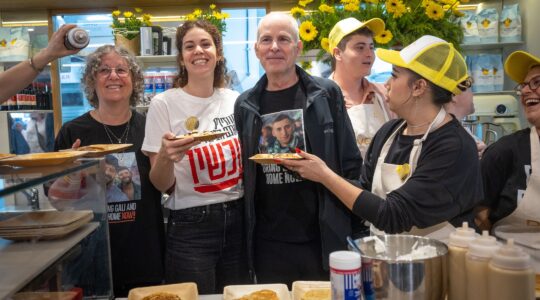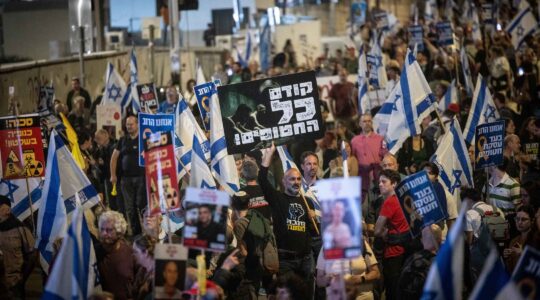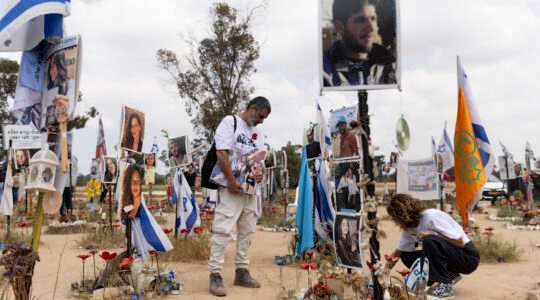Israel turns 70 this year. To mark the anniversary, JTA’s Ron Kampeas describes the U.S.-Israel friendship through portraits of all 13 presidents who have been in office during the Jewish state’s history. For other articles in the series, click here.
To get this unique look at Israel & the Presidents directly in your inbox, sign up here.
(JTA) — The assassination of President John F. Kennedy on Nov. 22, 1963, devastated Americans, and American Jews were no exception.
On Nov. 25, a Monday, synagogues opened for the national day of mourning — and Jews flocked to services in large numbers. (The night of assassination, nightclub owner Jack Ruby attended a memorial service for the president at Temple Shearith Israel in Dallas. Two days later, he would shoot and kill the assassin, Lee Harvey Oswald, fueling a half-century of conspiracy theories. A key piece of evidence was a film of the motorcade as Kennedy was shot; it was made by a Jewish Kennedy supporter from Dallas named Abraham Zapruder.)
Within weeks of Kennedy’s death, the Jewish National Fund announced plans to build a memorial to the slain president in a Kennedy forest near Jerusalem.
Kennedy was the first non-Protestant, and Irish Catholic to boot, to be elected president. Stories imagining the once unimaginable proliferated in the Jewish press after he secured the nomination: Could a Jew one day be elected president? More Cabinet-level Jews worked for Kennedy than any predecessor.
Kennedy overrode Eisenhower-era State Department policies and increased arms sales to Israel. Kennedy unabashedly dove into pro-Israel politicking: On the Dec. 5 after his death, he was to have been the guest of honor at the annual dinner of the American Committee for the Weizmann Institute of Science. In 1961, Kennedy pardoned Herman Greenspun, the Las Vegas Sun publisher who had been convicted in 1950 on charges related to gun running to the nascent Zionist state.
The one phenomenon Kennedy feared above all was the proliferation of nuclear weapons on his watch. He demanded an accounting of the purpose of the nuclear reactor Israel was building near Dimona. At a 1961 meeting in New York with Ben-Gurion, the prime minister noticeably mumbled a lot and used terms like “for the time being” in promising that the reactor would not produce weapons-grade fissile material.
Kennedy wanted Americans to inspect the plant; Israel kept dodging the requests. In May 1963, Kennedy threatened to isolate Israel unless it let in the inspectors. Neither he nor Johnson ever made good on the threat, and today, Israel’s nuclear capabilities are its worst-kept secret.
JTA has documented Jewish history in real-time for over a century. Keep our journalism strong by joining us in supporting independent, award-winning reporting.






